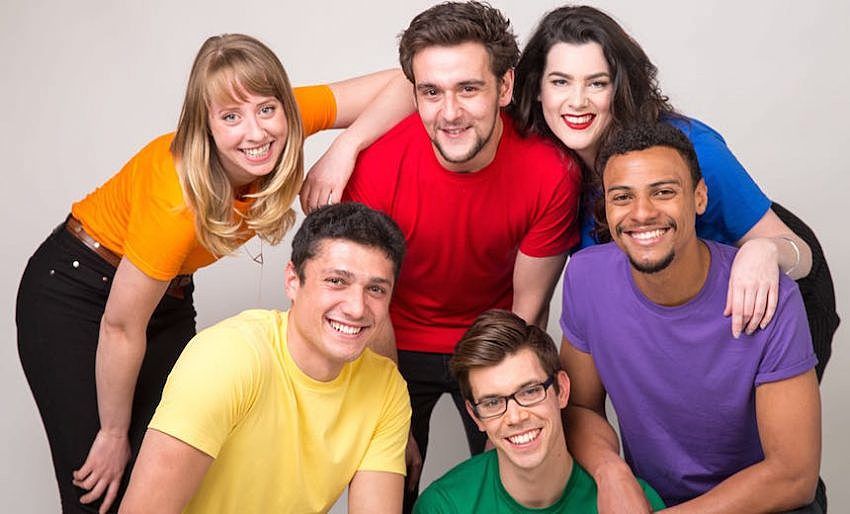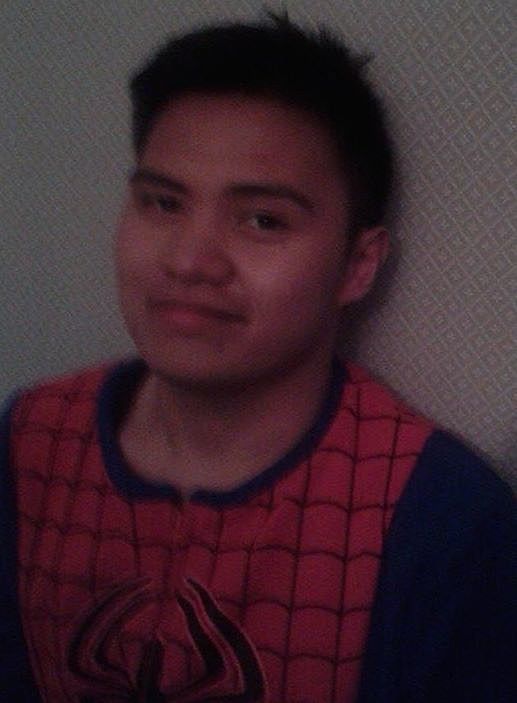Review: The Next Best Thing
Matt Loveranes reviews Chaz Harris' new comedy at BATS Theatre, The Next Best Thing.
Matt Loveranes reviews Chaz Harris’ new comedy at BATS Theatre, The Next Best Thing.
“What New Zealand shows have you seen with good representations of queer people?”
I was asked that question the day before I saw The Next Best Thing. I struggled to answer it; so too did the other people in the room, offering up Victor Rodger’s Black Faggot and the oeuvre of Auckland playwright Sam Brooks before stalling, only able to come up with the troubling and problematic. We quickly moved on to better representations in film and television, but the question lingered, still lingers.
It was on my mind during The Next Best Thing. Harris’ romantic comedy opens with four men sinking Coronas at the Orphan Bar, a rooftop venue with a name reminiscent of those miserable ‘Lonely Hearts Club’ narratives we’re all too familiar with. Each of these guys is nursing a romantic anxiety that’s getting in the way of his happiness. Lee the lawyer (Shane Murphy) is constantly falling for men who want nothing more than his body; writer Ryan (Will Moffatt) and gym junkie Matt (Tai McKenzie) are both pining for guys they’re too afraid to ask out; bar manager Alex (Ben Whatson) is still smarting over his ex leaving him for a twink he bitterly calls “The Kid”. Their solution: “Stop fucking like men and start dating like women” – that is, getting to know a person first before sleeping with him. It’s a reductive premise with a lot of potential to cause offense; whether that potential is realised depends entirely on what Harris does with his characters.
Harris leans heavily on internal monologues to tell us about these people and the ideas that he’s bringing to the table, and these monologues are most effective when those ideas are inextricable from the person delivering them. Matt’s monologue about a connection through mutual masturbation, for example, starts as a tender and acutely specific memory but quickly becomes horrific when he allows himself to be emotionally vulnerable with the person, deteriorating into a brutal shaming at that person’s hands. It’s easy to connect with the honesty and clarity of this experience, yet these moments are few and far between. The majority of the monologues are less careful, less nuanced – they hit obvious beats, defuse pockets of dramatic tension, and leave the characters without distinct voices.
In that homogeneity, Harris inadvertently reveals that his ideas aren’t particularly novel or deep. In fact, they’re unnervingly shallow and uncritically privileged. The Next Best Thing is a low-stakes sitcom where the laughs are simple and there’s always an easy ending at hand. It’s the kind of sitcom that casts women (Jayne Grace and Catherine Zulver) as anonymous ciphers, sassy enablers to the men in their lives. The kind of sitcom where everyone is pretty and uniform, lacking any discernible difference in age, body type, or even cultural upbringing. The kind of sitcom that is unwilling to engage with anything remotely ugly or difficult or true.
The Next Best Thing is a low-stakes sitcom where the laughs are simple and there’s always an easy ending at hand.
It’s not a problem in itself that these men are all conventionally attractive with desirable lives. The problem is that Harris already paints these men with a pretty broad brush, and that broad brush means the actors find it difficult to hit upon a convincing chemistry as a friend group because they’re all playing the same thing. On top of that, the glossy, idealised world Harris builds around these men is either politically backward or devoid of political curiosity, blunting and actively working against his attempted deconstruction of ‘shallowness’ in the gay community.
This is especially frustrating because Harris gives himself several opportunities that demand deeper levels of engagement. At one point, Matt casually reveals that he’s been subjected to racism by men he’s tried to date, remarking, “Sometimes men don’t like my skin colour.” It’s a blink-and-you’ll-miss-it moment, dropped in the mix like there’s no deeply-entrenched history behind it or consequence to it. Neither Matt nor Ryan talk about it again, focussing instead on Ryan’s mundane problem of having standards that are just too high. The juxtaposition is shockingly tone deaf.
The Next Best Thing is further hobbled by clunky transitions that slow down Harris’ briskly-paced, televisual script, and by under-rehearsed performances. The production design across the board is confusing, too; the lighting, sound, and set design don’t cohere with each other and often get in the way of actors, physically and emotionally, instead of complementing them. The harsh spotlights during the monologues belong to a different show than the bland washes that cover the stage the rest of the time. All of this only functions to emphasise the patchwork feel of the show.
The Next Best Thing doesn’t burden itself with ambition, though, to the point that it may seem unfair to hold its feet to the fire. When minority-focussed theatre is too often saddled with an inescapable burden of presumed importance, it should be refreshing that Harris doesn’t try to be more than a fun, funny fly-in-the-wall in the world of gay relationships. But his voice is generic and bland. His jokes are a roll call of sex puns and slight, clumsy insults, never hilarious, clever, or even peculiar enough to get past the poor judgment calls and missed opportunities.
“What New Zealand shows have you seen with good representations of queer people?” The question still lingers. The Next Best Thing definitely hasn’t answered it. We have to keep making and sharing, supporting and chasing that rainbow, even if we’re sharing difficult and ugly things. But we shouldn’t have to settle for things that say nothing, let alone things that are stale and unfunny. We shouldn’t have to settle for ‘the next best thing’.
The Next Best Thing,
BATS Theatre, Wellington,
Thursday 1 September to Saturday 10 September 2016.
For tickets and more information, visit the BATS website.

